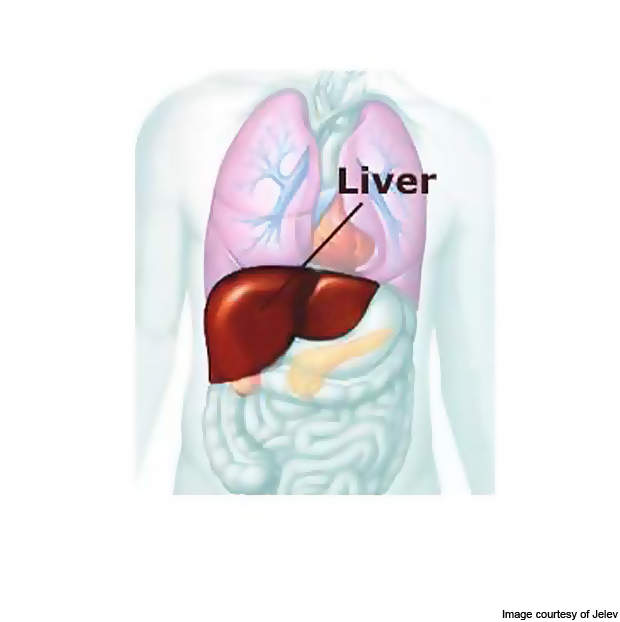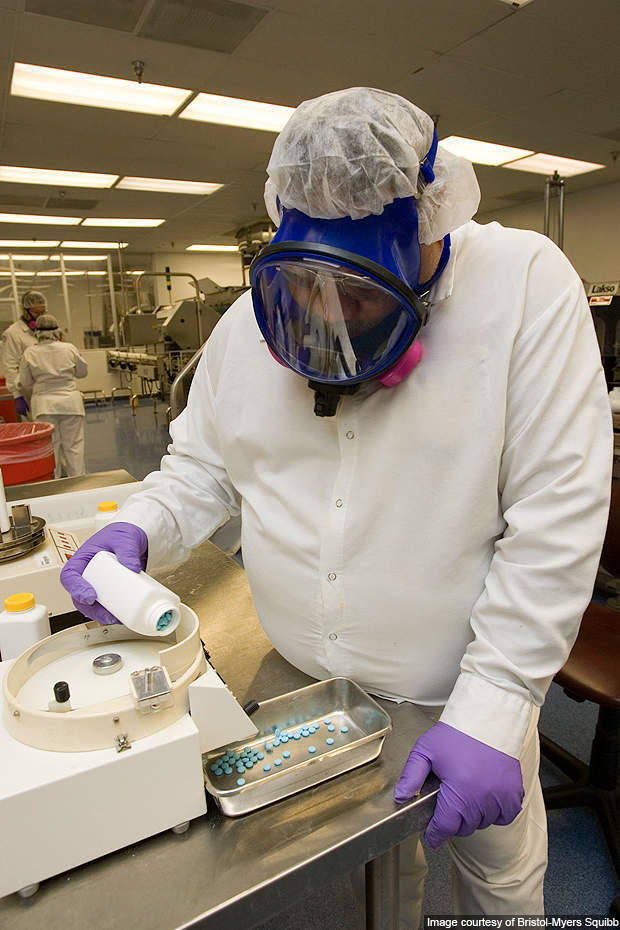Discovered by Bristol-Myers Squibb (BMS), Entecavir / Baraclude is an antiviral drug for treating chronic Hepatitis B.
The drug was approved by the US FDA for the treatment of Hepatitis-B infection in March 2005. The drug is also approved to be marketed in India, Australia, China, Indonesia, Philippines and Singapore.
On 9 December 2008, European Association for the Study of the Liver (EASL) recommended that Entecavir can be administered as a first line treatment of chronic Hepatitis B.
Hepatitis B infection
Hepatitis B Virus (HBV) causes Hepatitis B infection. HBV is a DNA virus that can be transmitted through blood, sexual contact or from mothers to children. The Hepatitis B infection in acute stage causes inflammation to the liver or jaundice and at chronic stage may cause liver cancer and cirrhosis. Approximately 10% of HBV infected patients reach the chronic stage of HBV infection, which can cause end-stage liver disease (ESLD) and hepatocellular carcinoma (HCC).
It was found in a study that approximately 25% of the adult HBV infected patients who developed the chronic infection in their childhood have died due to liver cancer or cirrhosis. The disease has infected more than 2bn people worldwide, over 350m of which are living with the chronic infection and about 600,000 people die every year due to the consequences of the disease. In 2006, a study by the Center for Disease Control (CDC) revealed that there were about 46,000 new cases of Hepatitis B reported in the US.
Targeting the disease
Entecavir is an antiviral drug that targets infection-causing Hepatitis B viruses. The drug is mainly used for treating liver infections caused by HBV. The drug contains a nucleoside analog that can selectively inhibit DNA synthesis in Hepatitis infected cells to work against HBV. The drug can be used both as oral solution and tablets. It can’t cure or stop HBV but can reduce the chances of the disease reaching the chronic stage and therefore causing liver damage or cancer.
Clinical trials
In 2003, BMS started Phase II clinical trials on the drug in Japan and concluded them in 2006. The study was conducted on 282 Hepatitis B infected patients. The safety and efficacy of the drug was studied by administering different doses of the drug in a 24 weeks time frame.
Phase III clinical trials on the drug in the US started in May 2002 and the primary outcome of the study was revealed in 2005. The study enrolled 1,633 HBV infected patients who were aged 16 years or older. The trials included two more studies, one on nucleoside-therapy-naïve patients and the other on lamivudine refractory patients.
In a study named AI463022, 709 nucleoside-naive patients having detectable HBeAg with chronic HBV infection were enrolled. The study focused on investigating the safety and efficacy of Entecavir in comparison with lamivudine, an approved therapy. The patients were administered with a daily dose of 0.5mg of Entecavir or 100mg of lamivudine for 52 weeks.
In another study named AI463027, 638 nucleoside-naive patients having positive or negative HBeAg with chronic HBV infection were administered with a 0.5mg daily dose of Entecavir or 100mg daily dose of lamivudine for 52 weeks.
In both the studies, after 48 weeks it was found that in primary and secondary efficacy endpoints Entecavir was superior to lamivudine in reducing the viral load and bringing histologic improvement and ALT normalisation.
The AI463026 study enrolled 286 lamivudine-refractory chronic HBV infection patients who were administered with 1mg of Entecavir or 100mg of lamivudine daily for 52 weeks. The results of the study showed that Entecavir was more effective than lamivudine.






